Roses and Bullets by Akachi Adimora-Ezeigbo (Book Excerpt)
 Ginika watched the man drive off in the pickup truck and disappear round the corner of the dirt road. She surveyed the brown envelope he had just delivered to her and felt a slight tremor in her heart. A folded scrap of brown paper, no doubt, but intuitively she felt it possessed the power to pulverize her peace. The threat was not the letter but the one who produced it, she thought. In the distance, some children played in the grass. They looked so charmingly happy; free as birds released from a cage and allowed to take wing.
Ginika watched the man drive off in the pickup truck and disappear round the corner of the dirt road. She surveyed the brown envelope he had just delivered to her and felt a slight tremor in her heart. A folded scrap of brown paper, no doubt, but intuitively she felt it possessed the power to pulverize her peace. The threat was not the letter but the one who produced it, she thought. In the distance, some children played in the grass. They looked so charmingly happy; free as birds released from a cage and allowed to take wing.
Children would be happy anywhere, she thought, as long as their parents were around, as long as they had other children romping around them. Ginika lifted her eyes as if she was searching the sky. The sun was shining; the weather was fine. The July sun, she mused, was always sweet to the skin, its heat moderated by the ever-present rain clouds. Certainly, a time to be happy, but many things had gone far wrong in the land and war had just broken out...
Ginika turned and entered the house. It was the biggest of the many bungalows tucked away down a street of mango and cashew trees on the outskirts of town. These were the staff quarters of St Augustine’s College. She was the sole occupant of one of the five rooms in the house. She slipped unobtrusively into it to read her letter. Gingerly, she opened the envelope as if it was a letter bomb waiting to go off.
“Ginikanwa, I want you to come home immediately. I want my family to stay close together. Your brother has returned from university. I wonder what you are doing in Enugu and why you did not come straight to Mbano when schools closed. I wish you were here without waiting for my letter. Sometimes I think you act wilfully just to annoy me or get me in a temper. Don’t I deserve to be treated with filial affection and respect? You are my only daughter and I care for you more than you realize. I doubt if what I say sits comfortably with you. Anyway, get your things ready; I will come over to pick you up as soon as I can get away for a few days. Kindly show this letter to your aunt and her husband. I am sending it through Doctor Ufo Ndefo, a friend who is returning to Enugu...”
Ginika stopped short; there was little else to read, anyway. Just his name written in full, rather than signing himself ‘Papa’ or ‘Dad’ as she thought other fathers would probably have done.
Ginika was about to change into her nightdress when her mother-in-law called her to her room. A few minutes earlier, she had tidied the table where they had dinner, which was served later than usual because her father-in-law had returned late from where he had gone. She had wondered if he still saw Nwoyibo, for he often came home late since the refugee woman had moved away from Ama-Oyi with her children. If she was indeed in Ogboji – as people said in the camp – then she was not far away, as Ogboji was close to Ama-Oyi. Her father-in-law could go there to see her if he wished.
“Sit down,” her mother-in-law said. She was sitting on the armchair in front of her dressing table and chewing a stick.
Ginika sat on a sofa which was pushed against the wall opposite the door and waited. Her mother-in-law scrubbed her teeth with the long chewing-stick and intermittently opened her mouth wide to gaze at her teeth in the mirror. She grimaced. “This war is terrible; one can’t find a tube of toothpaste anywhere to buy. I’m tired of it all.”
Ginika shook her head to show her empathy, but did not speak.
“Did you and Ozioma tidy the kitchen?” her mother-in-law asked, looking at her for the first time since she came in.
“We did, though Michael is still there doing the dishes.”
“It is now three months since Eloka returned to his battalion, is it not?”
“Yes, it is.” Ginika wondered what she was getting at.
“I’m sure you know why I called you?” Her mother-in-law glanced at her before putting her chewing-stick on a saucer placed on the dressing table.
“No. I have no idea why you sent for me.”
Her mother-in-law gave a mirthless laugh. “I asked you this question before and I want to ask you again because of Eloka’s visit home. Are you pregnant? Did you do what I advised you to do when I talked to you on this matter?”
“I’m not pregnant.” Ginika felt anger rising inside her but she didn’t want to give it room to grow. “Mama, I thought you and Eloka discussed this matter when he was here? Why do you bring it up again?”
“You are asking me why I bring it up, eh? My daughter-in-law asks me why I want to know if she is pregnant. Aru, abomination! Why do you think we married you – to come here and stare at us in the face?”
“Mama, I’m going to bed. Good night.” She got up to leave.
“Sit down. I have not finished with you. You have not tried to see things from my point of view, have you? You listen to Eloka and allow him to have his way in this matter. He is a man: what does a man know in a matter like this? I’m amazed at your lack of common sense – a woman who is not anxious to have a child for a husband who is a soldier! Do you know tomorrow? Do you know what can happen even in the next minute? And you allow Eloka to go away again without at least attempting to get you pregnant.”
Ginika was very angry and knew she would lose her temper if she did not leave the room immediately. Without another word, she walked out.
“You have no sense,” her mother-in-law’s angry voice pursued her. “You want to make me childless. I will show you, anu ohia, bush animal. You will see something in this house.”
Ginika paused long enough at the door to hear her shout, “I said it when I first saw you that your beauty is skin-deep, ocha ka omaka. If only Eloka had agreed to marry the girl Adaeze found for him, I would not have been put in this condition.” Her mother-in-law began to sob.
Ginika ran to her room, sat on the bed, thinking. What was she going to do? She felt like running away from the house, but where would she run to? Her father and stepmother would not receive her. He would blame her for disregarding his advice against getting married. Going to Eloka was not an option, as he had expressly said she should stay with his parents. She couldn’t go to her aunt who was weighed down by her own worries and found it difficult to feed her family. Ginika would be another mouth to feed. How would she be able to continue to live with her mother-in-law who now regarded her as an enemy?
No one told Udo that they were close to the war front. They had been driving for about an hour, it could be longer – he did not have a watch to check time. But he noticed the lorry was moving slowly and without light. There was darkness everywhere. Udo felt something like smouldering fire ravish his stomach and he pressed his belly with both hands. Then involuntarily, he stretched one hand and felt about until he found Ubochi’s hand and held it. Ubochi also responded by pressing Udo’s hand. They sat motionless until they were asked to get off. Communication was now in whispers. The corporal’s garrulous voice had turned into a whisper.
When eventually they had been deployed to their positions and told what to do, Udo clutched the gun he was given and lay on the clammy soil of a shallow trench, alongside three other soldiers. Was it a Mark IV or a Madison they gave him? He was not sure. He did not know how long he lay there – whether a day or two days. The sound of small arms and shells which had been muffled before now became more distinct, louder. As each shell landed and exploded, Udo shut his eyes and prayed, remembering he had not prayed regularly since the war started. “God, I didn’t forget you, please don’t forget me,” he prayed. “Save me.” He tried to prevent his mind from focusing on the present terror by thinking of his mother, his sisters and Sister Ginika. Would he see them again?
Then bedlam erupted, as shells began to rain down into the trenches, as if the machines and guns were guided by an unseen power. Each shell that exploded took lives with it. Cries of men rose and commingled with the sound of explosion. As Udo lay trembling and calling on his mother, a solid but wet object fell on his back and rolled down beside him. With the gentlest of movements, he stretched his hand and touched it. He gave a stifled cry – it was a human head severed at the neck which still nestled in the steel helmet that it had worn when it belonged to a body that was intact. His hand and body were covered with blood. Udo discovered himself shivering and no matter how he tried, he could not stop his body from shivering. Then he lost consciousness.
He came round at dawn, opened his eyes and heard nothing. Everywhere was quiet. Where were the men in the trench with him? They had abandoned him when they retreated, thinking he was dead. He lay still for a while, afraid to get up in case there were vandals lurking in the surrounding bushes. Cautiously, he raised his head and saw the mess around him – the head in the steel helmet, pieces of human flesh and shrapnel littering the trench and the surrounding. He felt his body and saw that though he was covered in blood, he was not hurt. He picked up his gun and was sure it was a Madison. Gradually, he sat up, came out of the trench and looked around. It was a terrible sight to see dead bodies lying about and holes dug by exploding shells, but there was no movement anywhere. Gingerly he stepped forward and began to walk away, cautiously, at first and then swiftly. He didn’t know where he was going, but he kept moving in the forest, keeping away from roads and hugging the anonymity and the eternal silence of the jungle. Even animals seemed to have fled, for he saw none in his way, except a few bush rats and squirrels.
They assembled at an agreed location in the market. Ginika placed her bag on the ground in front of her and stood close to Eunice and Nkeonyelu. She was pleased with all she had bought – salt, rice, beans and tinned fish. She had even bought a packet of sugar and tea which she was sure her aunt’s children would love. They would drink tea with the dry milk Janet had given her the previous week. It was the evening of the second day and they were ready to set out for the return journey.
“Carry your loads,” Achara instructed.
Ginika tried to lift her bag but it was so heavy she needed help. One of the guides came to her rescue. Soon everyone carried his or her load. By the time they entered the forest, darkness had descended. They walked in a single file in total silence. Ginika felt the weight of her bag, as it pressed down on her, but she didn’t mind. She trotted behind the person in front of her in absolute concentration, as she didn’t want to stumble and fall.
They had walked for about an hour when shooting erupted from the right. Kakakakaka! Kakakakaka! Ginika was too shocked to think and stood trembling, not sure of what to do.
“It is an ambush,” she heard someone cry, but was not sure whether it was Achara or one of the two guides. “Run for your life.”
“Let us meet where the fallen tree is.” She recognised Achara’s voice and it seemed to yank her out of her confusion and inertia.
There was a stampede followed by cries of pain. Ginika knew some of the traders had been hit by bullets. She started running to the left, following the sound of feet making rustling noises as they crushed the dry leaves littering the forest. The bag was impeding her movement and she threw it down and belted away like a comet. She stretched her hands in front of her, so that she would touch any obstacle in her way before she crashed into it. Steadily she followed the sound of pounding feet. She fell when her feet touched very soft ground and suspected she was in a marshy area. She got up immediately and pursued the fleeing feet. She heard the sound turning right and swerved to the right. After an hour or more – she was not sure – the feet stopped abruptly. Ginika stopped, trembling.
“Who is following me?” she heard a strange voice ask.
With her body shaking like a leaf, she whimpered, “It’s me, one of the attack traders.”
Her terror increased when they entered the army camp. They took her past the hall where she had rehearsed Mammy Wota with Eloka and the other actors. The sergeant opened a door with a key and they pushed her in. She found herself in a room with a dusty floor and a window which was permanently shut because a block of wood had been nailed across it. There was no furniture in the room. She shook from fright, wondering why they had brought her there.
“You go dey for guard room till you tire for here or you can die if you like,” he spat. “If you make noise, I shoot.”
“Sergeant, sir, I beg you, release me,” she pleaded, her face flooded with tears.
“Believe me, I never asked Sergeant Sule to get himself circumcised. Why should I do that? I have my own husband.” Her voice tripped over the word ‘husband’. Could she really say she had a husband now?
“You be bloody liar, rebel woman,” he snarled.
“I’m not lying,” she protested, one of her hands pressing the floor on which she sat. “Sergeant Sule and I were not even friends...”
“Shut your dirty mouth,” he bellowed. Turning to the two soldiers, he said, “Wait outside.”
She saw his face break into an unpleasant smile, as he approached her. His eyes were cloudy with lust. Her eyes widened with horror and she was about to scream when he said, “If you cry out, I go kick you to death.”
“Don’t touch me,” she said, “or I will report you to the commander of this camp.”
He laughed derisively. He lunged forward to grab her but she shrank away towards the wall. The room was not bright but there was enough light for her to see every move he made. He began to unbutton his trousers as he inched forward steadily. Horrified, she shrank away further to another part of the room. He followed her like an animal preparing to pounce on its prey. What would she do? No one would help her. No one knew where she was. The sergeant could easily overpower her and have his way, but she intended to put up a fight this time.
When he was ready, he leaped forward, grabbed her around the waist and pressed her body hard against his. She was repelled by his dark ashen skin and his thick wet lips. Remembering the self-defence tactics Captain Ofodile had taught her and other special constables, she kicked the sergeant’s groin and heard him cry out. He abandoned her and staggered backwards. His eyes were full of hate. He turned to the door but it opened before he reached it and the two soldiers came in, their eyes questioning.
“Hold the witch,” he barked. And as they pounced on her, and held her hands, he picked up his gun, which rested against a wall, and aimed it at her head. “I go kill you now,” he roared. She cried out in terror. He changed his mind, swung it before her and then hit her ankle with the butt. The pain caused her to cry out again. After he had returned the gun to its former position, he reached for her body and tore off her blouse, exposing her breasts. Her skirt suffered a similar fate and soon lay at her feet.
She struggled to free herself but they held her and pushed her to the ground. She screamed and one of them clamped a rough hand on her mouth. Divesting himself of his clothes, the sergeant grabbed her legs and prised them open. He entered her with force and as her naked body heaved under his, he stretched his hands and squeezed her breasts until they were sore. As he strove to reach his climax, his thrusts became frenzied and he taunted her. “I go fuck you, ashawo. You kill Sule. He be better man pass all your rebel brothers. Dat thing you no give Sule, I go take am today. Ashawo!”
She whimpered and groaned, unable to cry out because of the strong hand covering her mouth. Her eyes popped out like those of a rat gripped by a cat. At last, she felt his body shudder and then he rolled off her. She felt bruised all over from the pressure of his lean hardy body. Her body sweated profusely.
He glared at her and grinned cruelly. “Make you do your own,” he said, pointing to one of the soldiers. Ginika sobbed, as she watched helplessly. It was the soldier who had not said a word since the cruel drama began.
The man shook his head and said, “No, sir.” He turned his face away.
“If you no do, I go deal with you.” The sergeant’s nostrils flared in anger. “I go come back to you.” He turned to the other soldier – the one that had identified her in her aunt’s house. “Make you do your own.”
The soldier leered at her and, as he pulled at the button on his trousers, Ginika gave a throaty cry and lost consciousness.
Roses and Bullets was written by Akachi Adimora-Ezeigbo and is an excerpt from her book of the same name.
(Jalaa Writers' Collective, April 2011)
Copyright Akachi Adimora-Ezeigbo 2011.
 Akachi Adimora-Ezeigbo is a professor and former head of the English Department at the University of Lagos, in Nigeria. She has published several books including five novels, four collections of short stories, three collections of poetry, two plays and twenty children’s books. She has won several literary and academic awards inside and outside Nigeria. She was a Commonwealth Fellow at the Scholl of Oriental and African Studies at the University of London, a Research Fellow at the University of Natal, Pietermaritzburg, in South Africa, a Visiting Scholar at the Centre for African Studies at the University of Bayreuth in Germany and recently a Research Fellow at Royal Holloway, University of London. She was named Best Researcher in the Arts and Humanities at the University of Lagos in 2005. Adimora-Ezeigbo has won at least six major prizes in Nigeria including the Nigeria Prize for Literature which she jointly won in 2007 with Mabel Segun, for her children’s novel, My Cousin Sammy, and Heart Songs, her first collection of poems, which won the 2009 Cadbury poetry prize. Seventeen of her short stories have been published in journals, magazines and anthologies and four of them won prizes in short story competitions. She has also published fifty academic books and scholarly papers in local and international journals. In addition to her literary and academic work, she is a committed activist for women’s rights. Akachi Adimora-Ezeigbo has travelled extensively in Africa, Europe, North America and Asia.
Akachi Adimora-Ezeigbo is a professor and former head of the English Department at the University of Lagos, in Nigeria. She has published several books including five novels, four collections of short stories, three collections of poetry, two plays and twenty children’s books. She has won several literary and academic awards inside and outside Nigeria. She was a Commonwealth Fellow at the Scholl of Oriental and African Studies at the University of London, a Research Fellow at the University of Natal, Pietermaritzburg, in South Africa, a Visiting Scholar at the Centre for African Studies at the University of Bayreuth in Germany and recently a Research Fellow at Royal Holloway, University of London. She was named Best Researcher in the Arts and Humanities at the University of Lagos in 2005. Adimora-Ezeigbo has won at least six major prizes in Nigeria including the Nigeria Prize for Literature which she jointly won in 2007 with Mabel Segun, for her children’s novel, My Cousin Sammy, and Heart Songs, her first collection of poems, which won the 2009 Cadbury poetry prize. Seventeen of her short stories have been published in journals, magazines and anthologies and four of them won prizes in short story competitions. She has also published fifty academic books and scholarly papers in local and international journals. In addition to her literary and academic work, she is a committed activist for women’s rights. Akachi Adimora-Ezeigbo has travelled extensively in Africa, Europe, North America and Asia.


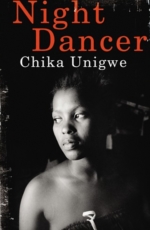



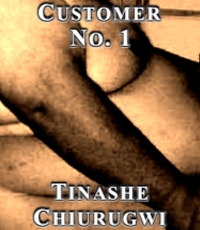
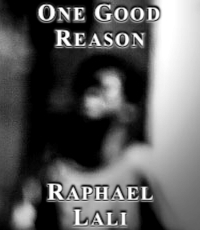


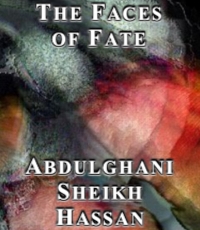


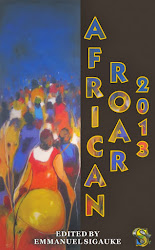


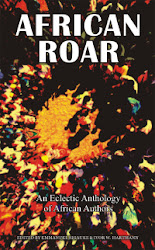

4 comments:
This is quite a touching excerpt, very gripping in parts.
Very profound excerpt. I love the writing technique .
Engaging.
I hope this comment gets to my readers: I appreciate your opinions. Thanks a lot for your honest comments. I hope you get to read the entire book - 524 pages long!
Post a Comment